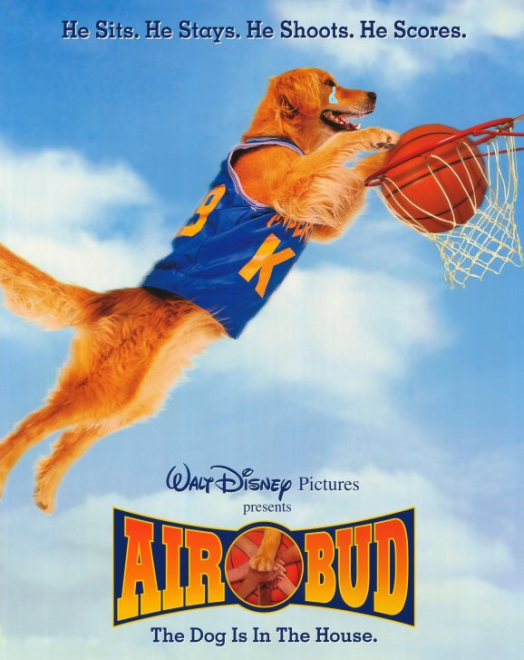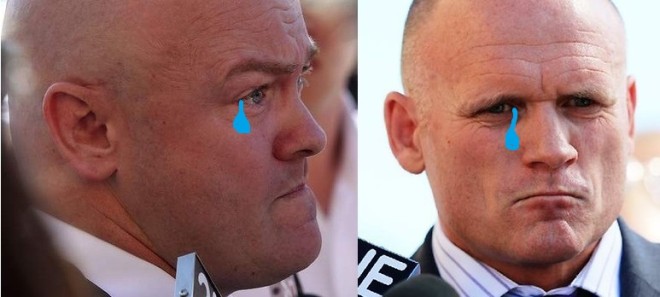Junk Explained: ASADA vs The Cronulla Sharks
Who is ASADA? What is Australian Sport? Why the Cronulla Sharks? Are they all on drugs? What does equine mean? And other answers to your questions.

Who is ASADA? What is Australian Sport? Why the Cronulla Sharks? Are they all on drugs? What does equine mean? And what defines a banned substance under the 32nd sub-clause of the 5th section of the World Doping Authority handbook?
These are all questions that have been raised over the month since the Australian Sports Anti-Doping Authority’s (ASADA) February announcement of an apparent widespread use of performance enhancing drugs in Australian sport. As the investigation slowly grinds on, exactly what it means for the major sporting codes in this country is still uncertain. If the lack of action following the announcement has prematurely stained the sheets of the Australian public, the fact that ASADA could keep pumping away for the rest of the year might make up for the initial disappointment.
What Do We Know?
What we do know is that ASADA have found evidence of the use of substances banned in the World Anti-Doping Agency’s (WADA) black list. Namely, a number of banned peptides: a family of naturally occurring chemicals abused by athletes in order to essentially hack their own bodies into a desired response. So if you were a cheating athlete looking at ways around the system, instead of injecting a human growth hormone, you might take a peptide that induces a response in your body to produces growth hormones naturally. Or instead of injecting the blood of a calf directly, you might consume a peptide that turns you into a half-cow/half-human super-being (who, for the sake of sci-fi style intrigue, we’ll call a Peptidean), before ending up in a situation not too dissimilar from the movie Air Bud, where a dog plays basketball because there are technically no rules against dogs doing so.

The announcement of the discovering of widespread doping focused in on the AFL and NRL. The AFL did a pretty good job of staying out of the spotlight (reportedly via cooperation and deal making in private with ASADA, which will keep their clubs mostly unaffected), while the NRL kind of stood around in fear and confusion, distracted by the guillotine suspended above their heads. Six NRL clubs are under investigation – Canberra, Cronulla, Manly, Newcastle, North Queensland and Penrith – and as you’re probably aware via the two week media whitewash of Cronulla logos and the footage of stressed club captain, Paul Gallen, the Cronulla Sharks have been the first to cop the blunt end of the axe.
–
Why Has This Become All About The Sharks?
ASADA will supposedly get to each of the other five clubs eventually, but here are some theories:
- Of the six clubs investigated, ‘Cronulla’ were the first on an alphabetical list that accidentally omitted Canberra;
- Cronulla’s name was drawn from a hat in the ASADA board room;
- This is all a ploy by the NRL to bankrupt Cronulla, in order to force a relocation of the franchise to the Central Coast;
- All the names in ASADA’s hat had Cronulla written on them;
- Something quite logical and in line with due process.
The seed for the shit-fight was planted in 2011 when a Cronulla player asked his team-mates, unprompted, what the word ‘equine’ meant. This is a fair question, because if someone gave me a vial of goo emblazoned with a ‘For Equine Use Only’ sticker, I would also want to know if I was an equine or not before I took it.
It’s likely that he was referring to TV-500, a substance used to increase strength and endurance in racing horses, which may have been offered to him as a supplement alongside his protein powder and multi-vitamin regime. This locker room question obviously sent a few eyebrows askew at the club, and is possibly the event that led to the severing of ties with the now infamous sports scientist Stephen Dank, who was fleetingly associated with the Sharks at the time. Cronulla’s quick move to drop Dank after a four week involvement was possibly the magnet that drew ASADA’s attention. What this has taught us is that Cronulla could actually be stress-free right now, if their players were provided veterinary dictionaries for their at-home perusal.
But the shit that ASADA lobbed at the ceiling fan in Cronulla’s Leagues Club lobby had only glanced a blade on its way up; when club chairman Damian Irvine returned from an overseas business trip, he sent ASADA’s turd right back through those spinning blades. In response to the investigation of the Sharks’ involvement in illegal doping, Irvine and his board sacked club doctor Dave Givney, football manager Darren Mooney, head trainer Mark Noakes, physiotherapist Konrad Schultz, and Sharks coach Shane Flanagan. While every other club named in the report stayed silent and waited for charges to be laid, Cronulla’s board showed the sporting world who was boss – by distrusting their staff, delivering what appeared to be an admission of guilt, and then opening up to a gossip journalist about it.
In possibly the most terribly worded interview in the history of sports journalism, Irvine admitted he was over his head in fan-splattered shit. He revealed that the mass sackings happened because the staff in question had failed to alert the board of the locker room incident of 2011. This means that the five staffers had not been sacked for facilitating illegal doping at the club, but just for being really bad communicators. A few days later, stating that he was an obstacle in the club’s way forward, Irvine stood down as Cronulla’s chairman in favour of Glenn Coleman, who looks exactly like a version of Damian Irvine from the future:
This series of management mishaps perhaps holds the key to the reasons behind ASADA’s first-up glance at the Sharks. The conspiracy theorists who aren’t busy scribbling out timelines will point you to the fact that Cronulla’s brittle management structure simply made them the most likely to crumble.
For the last three years, Cronulla have operated without a CEO, either because they didn’t have the money for one or, in the words of Damian Irvine, because they couldn’t find anyone suitable for the job. To ease the financial strain, Irvine’s top position had been merely honorable (read: unpaid), while stories spread that Shane Flanagan was sourcing and retrieving secondhand training equipment in his time away from coaching his squad. If anyone was going to get the willies and cough up evidence once some guys in suits came to town waving paper around, it was going to be the club with the questionably assembled chiefs.
What’s Happening To The Team?
ASADA’s strategy going into this investigation was to notify the club of potential infringements, before offering reduced six-month bans to any player willing to put their hand up and provide evidence. It was not meant to stand down players directly, but to dangle discounts in front of their eyes in order to gather confessions and bring down the secret Peptidean network that supposedly thrives within the NRL.
In response to these offers, Cronulla consulted ex-ASADA employees who suggested everyone put their hand up and take the deals (no one has to this date); the club was also advised by other former investigators to save face and sack someone (which they did a particularly good job of). Amongst this turmoil, the players were left to somehow pull themselves together with fill-in support staff to play the Gold Coast Titans in Round One of the NRL season, which they WON – bringing a tear to the eye of anyone with a functioning soul.
What Happens Next?
For Australian sport though, the question of why Cronulla were the first slid onto ASADA’s chopping board isn’t the most pertinent issue of this investigation. Nor is the legality of the substances taken, or how aware the players were of the substances allegedly consumed. The most pertinent issue is that the sporting seasons across the country play on unaffected. On the footy fields of Australia, there are any number of players (as many as 36 in the NRL) who have consumed some form of performance-enhancing drug, peptide-based or otherwise.
In ASADA’s tactical warfare on drugs in Australian sport, they’re allowing sporting crimes to be committed every single week. Yes, it’s a complicated issue that needs to be dealt with intelligently, but the fact stands that as ASADA commence their fishing expedition for a wider truth, they are knowingly allowing drug cheats to take the field. That the fans could be standing by players who may be in the wrong? Well, that may be the hardest truth to secretly inject in the side-room of a prominent sports physician’s office.
—
Max Easton is a Sydney-based freelance writer and research scientist. Best known as a music writer at Mess + Noise, his work has also appeared at Faster Louder, Polaroids of Androids, The BRAG and triple j magazine. Tweet him at @MaxEaston
